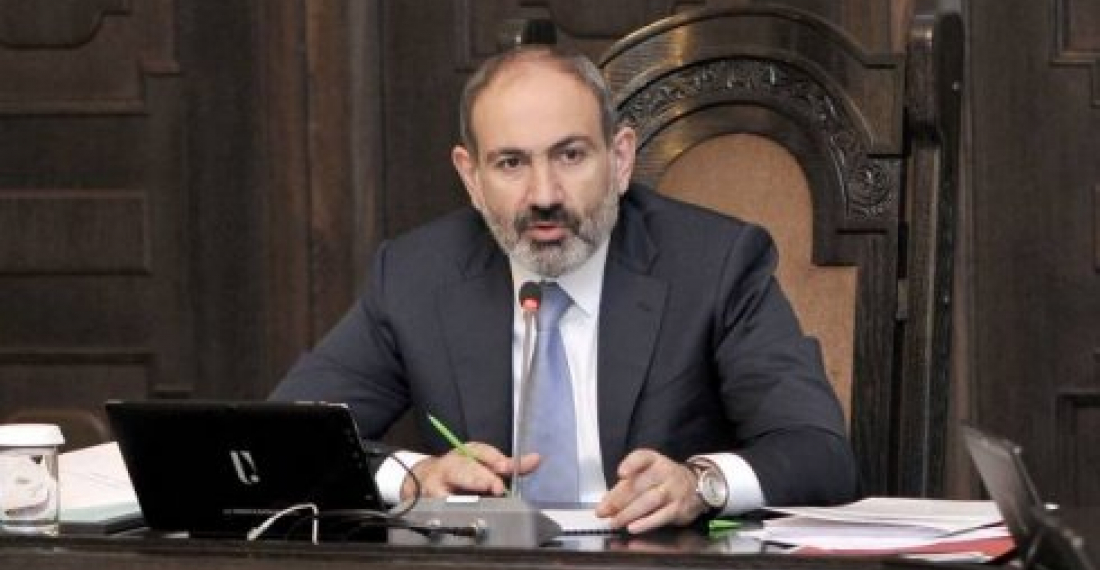Armenian prime minister Nikol Pashinyan has warned of a threat to democracy in the country from groups of "black shirts" who are planning to use violence to distabilise the political situation. The prime minister told a meeting of the cabinet of Ministers in the capital Yerevan on Thursday morning (6 June) that any kind of promotion of violence and hatred in Armenia must receive strong counter-action,
"One year ago a non-violent, velvet revolution took place in Armenia and afterwards a number of forces, including those directly or indirectly linked with the former corrupt system, attempted to create a certain space of political activities for themselves. This is natural in any democratic country. However, after one year of attempts and activities these forces finally understood that they are irreversibly marginalised, and lately faced with the prospect of not receiving any political support, certain circles decided to carry out promotion of political legitimisation of violence in Armenia. In this context an organised campaign is being carried out, the main message being that they are preparing to solve political issues through violence. And these messages and rhetoric are now more and more organised. We have operative information that a certain segment of these circles decided to form groups of so-called men-in-black, who will tour around town in an attempt to create a certain mood, to stand out with a certain behavior and more," Pashinyan said.
In this context, the PM noted that in a country where a non-violent revolution has won, and where calls for violence are taking place, the response of the law enforcement bodies cannot be a velvet one. "In such conditions the law enforcement system must give a very strong counter-blow to all such occurrences", Pashinyan said.
The prime minister said that he had spoken about the issue with Police Chief Valery Osipyan in the morning.
"Regarding these men-in-black groups, they must be located, their clothing problem must be solved, they should be given colorful bow ties, and seen off towards a normal, civilized and law abiding life with the brightest possible flowers," the prime minister said.
"This is a matter of public safety and national security. And treating these issues only as infringements of the criminal code in my opinion is not enough. If there is a need then legislative changes must be initiated, and the promotion of violence and hatred must receive a very strong counteraction. I want to emphasize that it doesn't matter whatsoever whether these persons carrying out the promotion of violence or hatred are acting as supporters or opposition of the government. Anyone promoting violence in Armenia must receive a strong counterblow. I want you to understand correctly, this isn't about political activities, criticism or strong criticism, which is irreversible guaranteed in Armenia", the prime minister said, adding that the counterblow to the promotion of violence must be "iron-hard".
source: commonspace.eu with armenpress.am and agencies.
Photo: Nikol Pashinyan







